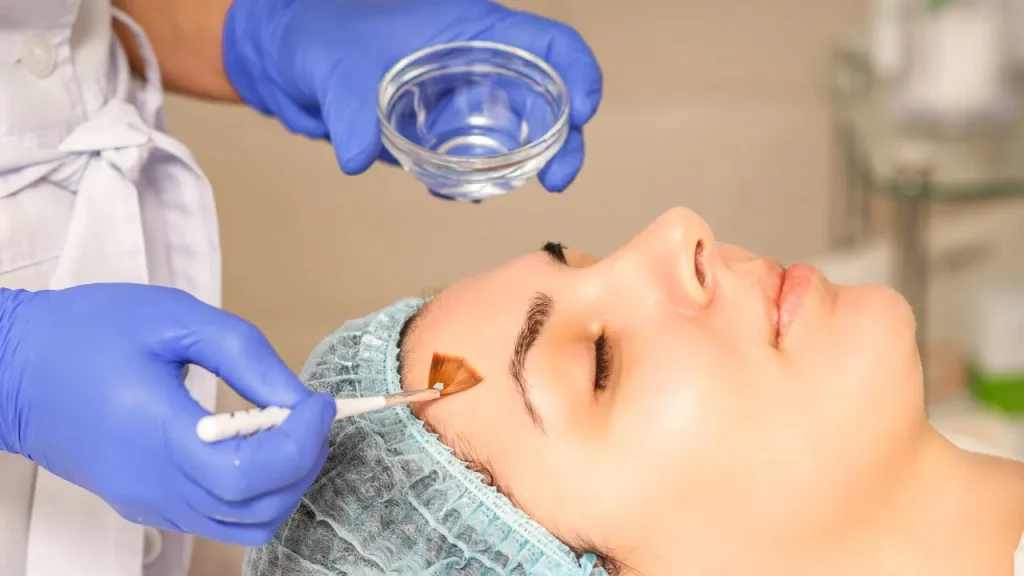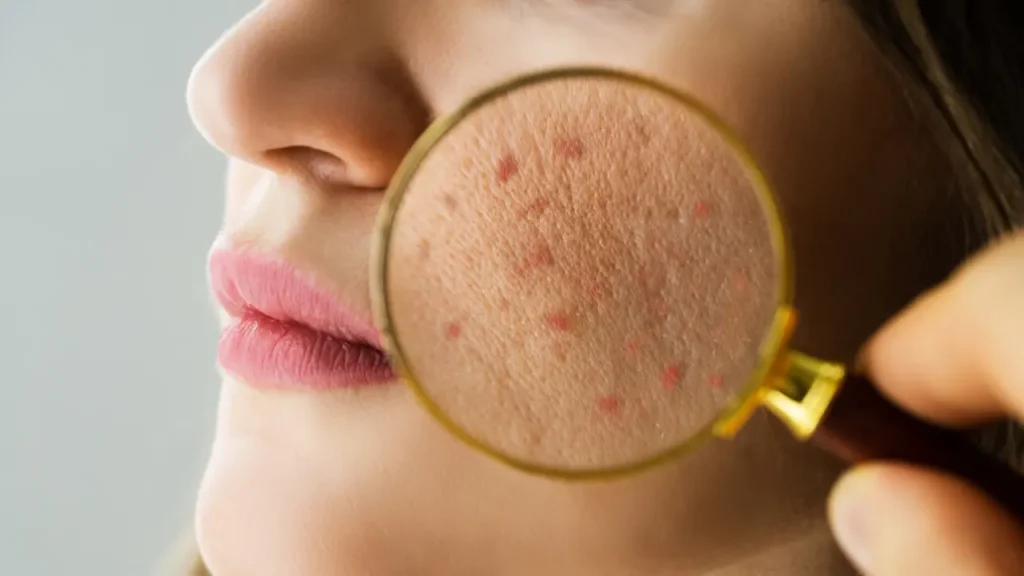Discover the path to flawless skin with the latest innovations from Chemist Confessions—their groundbreaking formulations featuring glycolic acid and retinol promise to revolutionize your skincare routine. Dive into the science-backed magic behind these potent ingredients and discover the secret to radiant, rejuvenated skin.
Navigating the vast skincare world can feel like wandering through a maze blindfolded. You’ve stood in front of gleaming store shelves, overwhelmed by the sheer number of products, each promising miracles. You’ve wondered, picking up one elegantly packaged serum after another: Am I using the right products? You might question whether they work and if they’re safe. Who hasn’t felt the weight of their skincare routine, thinking: Do I really need dozens of products?
Imagine finding products that work with your skin to reveal a radiant complexion that seems to defy time. Flawless skin doesn’t have to remain in your imagination; it’s within your reach. Two powerful ingredients, glycolic acid and retinol, could pave the path to that coveted youthful glow. A couple of brilliant minds, Gloria Lu and Victoria Fu, who once graced the research labs of L’Oréal, have made innovations in formulating skin care products using these two substances. But before we tell you more about their company, Chemist Confessions, let’s touch on the history of glycolic acid and retinol and the science behind their contributions to skincare.
You May Also Like:
The Krill Oil Miracle: End Pain With an All-Natural Skin Treatment
Looking Healthier and Younger With the Best Superoxide Dismutase Supplement: Good Skin Day vs…
Achieve Flawless Skin With Glycolic Acid and Retinol Innovations from Chemist Confessions is an original (HerHealthWatch) article.
Glycolic acid and retinol:
Timeless treasures in skincare
Glycolic acid, an alpha hydroxy acid (AHA), finds its roots in the sweet embrace of sugarcane. While the annals of history might not pinpoint an exact date or the pioneering individual behind its discovery, it’s fascinating to note that ancient civilizations were onto something. The Egyptians, for instance, bathed in sour milk baths, while the Greeks favored grape extracts—rich sources of AHAs—to achieve that enviable, radiant glow.
In the late 20th century, Glycolic acid began its ascent as a skincare superstar. Celebrated for its ability to exfoliate gently, it sweeps away lifeless skin cells, unveiling fresh, new skin for a luminous complexion. From tackling pesky acne to diminishing scars and the tell-tale signs of aging, glycolic acid is a multitasker.
The journey to uncover retinol, also known as Vitamin A1, was nothing short of epic. With a history spanning roughly 130 years, it’s hard to single out one ‘eureka’ moment. What is known is that in 1909, Frederick Gowland Hopkins’s revelation about certain fats being vital for rat health paved the way for discovering our star, Vitamin A.
The 1960s saw synthetic vitamin A, or tretinoin, making its grand debut in the skincare arena, initially as a cutting-edge treatment for acne sufferers. As time passed, it became evident that tretinoin’s curative power wasn’t confined to combating acne and became a formidable foe against aging. Gracefully reducing fine lines, wrinkles, and stubborn dark spots, retinol’s prowess cemented its place among anti-aging elixirs.

Glycolic acid and retinol:
The dynamic duo in your skincare arsenal
Glycolic acid, nature’s gentle warrior
Glycolic acid, a naturally occurring chemical exfoliant found in certain plants, has become a staple in many skincare products and treatments.
Exfoliation: Instead of the abrasive scrubs that can leave your skin red and irritated, glycolic acid delicately dissolves the outer layer of skin cells, revealing a fresher, more radiant complexion.
Hydration hero: Glycolic acid isn’t just about shedding; it’s also about nurturing. As a humectant, it increases the synthesis of glycosaminoglycans, molecules that draw water into the skin, ensuring your face is always hydrated and glowing. Glycolic acid’s potential to help with healthy cell turnover may also help boost skin barrier function, thus helping to lock in moisture.
Turning back time: This study in the journal Molecules discusses how glycolic acid can combat visible skin aging, including reducing signs of sun damage and minimizing lines and wrinkles while boosting the skin’s natural collagen and hyaluronic acid production.
Acne’s arch-nemesis: Glycolic acid can effectively treat various forms of acne, especially comedonal acne, which results from pores clogged with oil and dead skin cells. A 2015 study concluded that a combination treatment of glycolic acid and retinoic acid significantly improved acne scars in over 90 percent of patients, minimizing the need for other types of treatment.
Evening the score: Say goodbye to uneven skin tones and hello to a brighter, more even complexion, thanks to glycolic acid’s ability to tackle Hyperpigmentation (age spots or liver spots).
Retinol: the vitamin A vanguard
Retinol is a type of retinoid, and retinoids are compounds formed from vitamin A that are potent regulators of cellular activities, especially in the skin. Due to their broad spectrum of activity, retinoids can be used to treat many skin conditions.
Acne avenger: Retinol dives deep into pores, clearing them out and reducing acne lesions while improving the appearance of lingering scars.
Guardian against aging: Studies like this one published by JAMA Dermatology reveal that retinol effectively treats signs of natural aging, minimizing fine lines and wrinkles.
Combatting keratosis pilaris: Those tiny, hard bumps that sometimes appear on the arms, legs, or buttocks have met their match with retinol, which helps reduce the excessive formation of keratin, a protein naturally made by the body.
This study in Clinical Interventions in Aging underscores the efficacy of retinol in combination treatments for various skin concerns. Together, glycolic acid and retinol form a formidable team, ensuring your skin always feels and looks its best.

Chemist Confessions:
Innovators and educators
Chemist Confessions, a California company founded by Gloria Lu and Victoria Fu,
is a testament to the power of science, transparency, and genuine passion for skincare.
What sets Chemist Confessions apart is more than their impressive credentials or years of industry experience. It’s their unwavering commitment to the truth and their dedication to consumer education. They stand firmly against fear-based marketing, choosing instead to empower their customers with knowledge: “We know people want to make more educated purchases, so we created our brand based on sound formulations and product education. We want to squash consumers’ fears about purchasing skin care products.”
Chemist Confessions’ glycolic acid and retinol products
Chemist Confessions has two standout formulations that capture the essence of their scientific approach infused with the power of glycolic acid and retinol.
Double Play Retinol Face & Eye Treatment: A meticulously crafted treatment designed to target both the face and the delicate eye area, this dual-action formula harnesses the rejuvenating power of retinol, ensuring maximum benefits with minimal irritation. This anti-aging powerhouse works diligently to reduce the appearance of fine lines and wrinkles, pigmentation, and dark circles. It’s specifically formulated to be gentle enough for the sensitive eye region to combat signs of fatigue, puffiness, and crow’s feet. In addition to retinol, Double Play features 2% HaloxylTM peptides. It bolsters the efficacy of the product without additional irritation.
Gold Standard Exfoliation Treatment: A testament to the transformative power of glycolic acid, this treatment is designed for deep exfoliation to slough off dead skin cells, revealing a brighter, more radiant complexion beneath. Regular use can lead to a smoother skin surface, diminishing the appearance of pores and unevenness. One of the features that sets Gold Standard apart from other glycolic acid-based products is that it can be used in multiple ways. You can use it as a 10-minute rinse-off peel mask for maximum efficacy. Alternatively, you can mix a drop of it into your daily serum to boost effectiveness and to acclimate your skin to glycolic acid use.
These products, backed by science and crafted with care, are a testament to Chemist Confessions’ commitment to delivering genuine results. They embody the brand’s ethos of transparency, efficacy, and a dedication to the art and science of skincare.

Your best skin is within reach
Glycolic acid and retinol, two power-packed ingredients, have stood the test of time, proving their worth in skincare. Their transformative properties, from exfoliation to anti-aging, promise radiant, youthful skin that looks and feels incredible. With its foundation rooted in science and transparency, Chemist Confessions brings these ingredients to the forefront.
One way to make the most of these two powerhouse ingredients is to practice skin cycling, using glycolic acid one night and retinol the following night, letting your skin rest for two nights. According to dermatologist Dr. Whitney Bowe, skin cycling will boost the effectiveness of your products. Individuals with more sensitive skin or conditions like eczema or rosacea may want to try a five-night cycle instead, resting for three days. If you have any pre-existing skin conditions or take medications, it’s essential to contact your dermatologist before you make any significant changes to your routine.
If you’ve ever questioned the efficacy of your skincare products, felt overwhelmed by too many product choices, or are afraid of their ingredients, remember this: skincare doesn’t require a complicated routine or an arsenal of products. With Chemist Confessions, you’re not just investing in products but in education and empowerment to assist you on your journey to flawless skin.

For further reading
Very Well Health How to Use Glycolic Acid in Your Skin Care
PubMed Central Applications of hydroxy acids: classification, mechanisms, and photoactivity
Medical News Today Alpha hydroxy acid (AHA): Types, benefits, and how to use
Harvard Health Do retinoids really reduce wrinkles? – Harvard Health
Important Note: The information contained in this article is for general informational purposes only, and should not be construed as health or medical advice, nor is it intended to diagnose, prevent, treat, or cure any disease or health condition. Before embarking on any diet, fitness regimen, or program of nutritional supplementation, it is advisable to consult your healthcare professional in order to determine its safety and probable efficacy in terms of your individual state of health.
Regarding Nutritional Supplements Or Other Non-Prescription Health Products: If any nutritional supplements or other non-prescription health products are mentioned in the foregoing article, any claims or statements made about them have not been evaluated by the US. Food and Drug Administration, and such nutritional supplements or other health products are not intended to diagnose, treat, cure, or prevent any disease.



